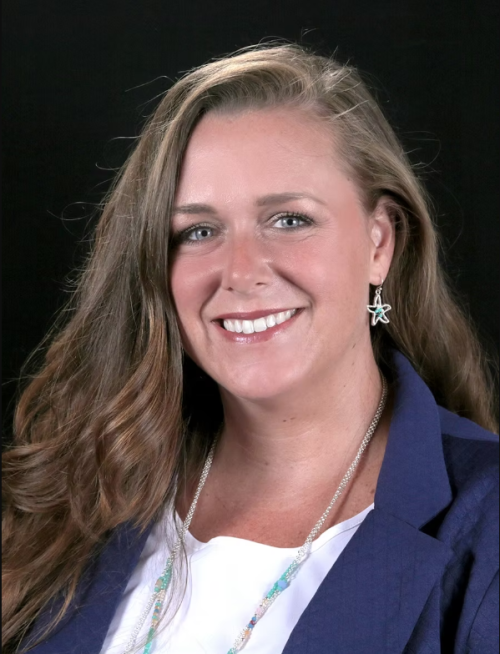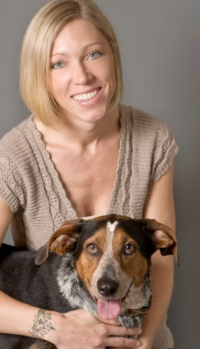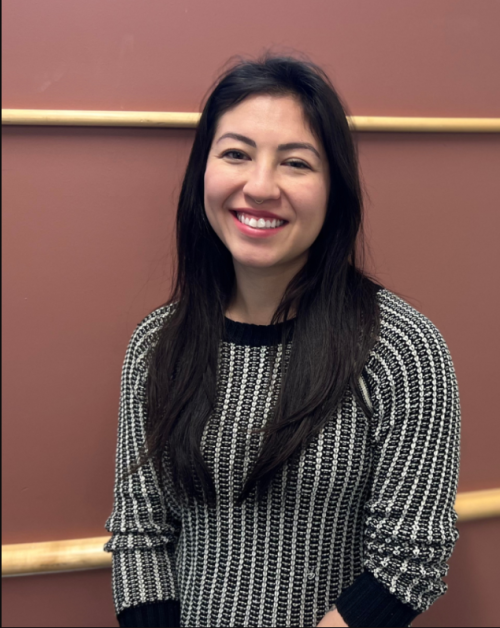Resources and Associations
Start your journey by exploring your options, discover new possibilities, and find the path that’s right for you. The AVMA offers extensive resources to explore different career options. Visit their site to learn more.
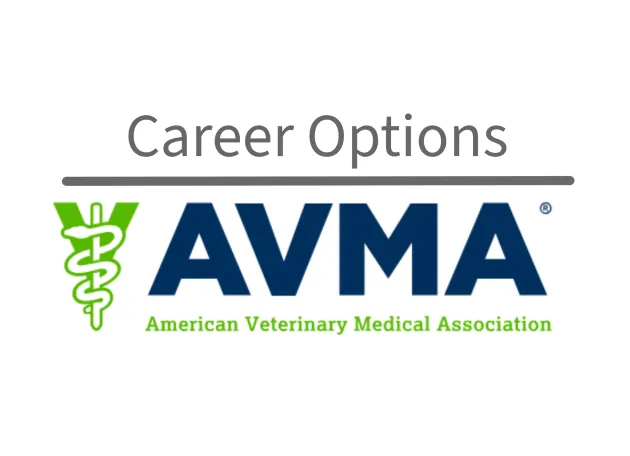
Learn from Alumni
Ohio State alumni live and practice in all 50 states and around the world. By sharing their diverse career choices and experiences, alumni can mentor and guide students as they choose a career path. Read alumni profiles and watch videos from alumni across the veterinary industry.
Video:
Profile:

Shraddha I. Cantara DVM '16, MS
Assistant Director, Veterinary Clinical Care & Training - Department of Veterinary Resources
Children's Hospital of Philadelphia Research Institute
Additional Education
Residency/Fellowship in Lab Animal Medicine, Emory University/Yekres National Primate Research Center 2019.
How/why did you get into this field?
I found out about lab animal medicine when I worked as a animal care technician prior to attending vet school. An animal care tech provides basic husbandry care for a variety of animals models used in biomedical research. I was fascinated when I found out that there are veterinarians that help care of laboratory animals. I had a previous interest in research, so when my interested were combined, I knew this was the field for me.
What do you like about this field?
I love being the advocate for the animals and protecting their welfare; it's my first priority. I get to part of a field that is finds better therapies and even cures for human and animal diseases. This field is complex and always changing as science and technology continue to advance, so it's never mundane.
What is one piece of advice you would give to someone who is interested in this field?
If you think you are interested, experience it. There are lots of opportunities for lab animal medicine externships, etc. at every level whether you're a 1st year student or on clinical rotations.
Profile:

Tyler Fields, DVM '18
Associate Veterinarian
Blanchard Valley Veterinary Clinic, Findlay Ohio
How/why did you get into this field?
I grew up in 4-H raise rabbits and poultry. This was one of my greatest influences for the field and I wanted to continue to work with these animals professionally.
What do you like about this field?
The species variety is definitely nice and keeps you on your toes. There is a huge education proponent of this field as many times you will be working with a first-time exotic pet owner. The time allotted for education in their pet's care, hopefully allows owners to recognize abnormal signs in their pet sooner as many of these species tend to hide disease until they are unstable.
What is one piece of advice you would give to someone who is interested in this field?
From a general practice standpoint (not ABVP boarded), exotics are not very likely to be consistent clients for annual examinations, rechecks, etc. Usually, these patients present for illness concerns as their first time seeing a veterinarian. Many times the financial cost for care outweighs the cost to acquire the animal and leads to less opportunities for diagnostics, therapies, etc. Therefore empirical treatment plans and euthanasia are far more common amongst these patients than their small animal counterparts. However, these owner recognize a problem with their pet and are willing to have them be seen in comparison to the vast numbers of these animals that will never walk into a veterinary clinic or seek medical care.
Profile:
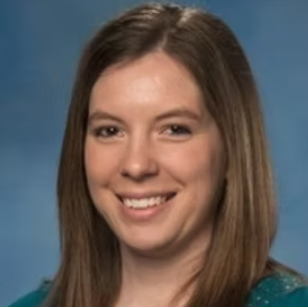
Elise Gerken DVM '16
Staff Veterinarian
Butterball, LLC
How/Why did you get into this field?
I got into poultry medicine because of my fascination in poultry that started in 4-H and my love of veterinary medicine. But it wasn’t until my senior year in undergrad that I realized the two fit together. I got my first job at Jennie-O turkey store because of an externship I did with them during an off-site rotation during 4th year at OSU (also turkeys are absolutely the best!).
What do you like best about this field?
Poultry medicine is the perfect blend of population medicine, food safety, diagnostic investigation, pathology, bacteriology, and more. In general, you get to make your own schedule, cost of diagnostic testing isn’t a big challenge because you work for a large company, compensation is phenomenal even with minimal experience, you don’t need to have a residency program to find a job but if you want to go that route they are shorter and you skip the internship part, emergencies are not really a thing (except when your chicken is burning on the grill).
What is one piece of advice you would give someone who is interested in this field?
Spend time doing externships with vets in the poultry industry and don’t be intimidated by not knowing much about poultry medicine, we all start out the same way.
Profile:
Jessica Williamson DVM '05
Professional Services Veterinarian with Idexx Laboratories
How/why did you get into this field?
I decided to join veterinary industry after a very positive experience with my company’s practice management software and associated training. I loved the focus my company places on the success of veterinarians and versatile products it offers because they are so adaptable to all kinds of practice.
What do you like best about this field?
The best thing about being a part of veterinary industry is the number of people I am able to help. If I can help a veterinarian improve their standard of care and business success with a new protocol, it benefits all of their clients, patients, and staff members. I also enjoy getting to meet so many experts in our field and learning even a little piece of what they have to teach me.
What is one piece of advice you would give to someone who is interested in this field?
My advice for entering the field of industry is to form strong relationships with your industry partners. They are often aware of job opportunities earlier and can answer questions about their specific companies. Once in industry, my advice is that you shouldn’t worry about “not knowing everything.” You will be extensively trained and learn new things every day.
Profile:
Danielle Capelli, DVM '19
Associate Veterinarian
Veterinary Care Center, Valdosta, GA
I work at a semi-rural 3 doctor veterinary practice located 10 miles north of the FL/GA line. We see dogs, cats, and horses-in clinic; we also see horses on an ambulatory basis as we are the only equine vets in the surrounding 3 counties. Our practice is general practice focused: common preventive care, routine dentals/surgeries, field castrations/enucleations (EQ), radiographs (SA/LA), general lameness, breeding.
I cold called this practice while I was job searching, they weren’t hiring but offered to consider my application. My husband was stationed in town with the US Air Force, and they were the only practice locally who would give me access to horses. Thankfully they considered bringing me on part time, though I’ve never worked less than a 45 hour work week and met me perfectly with a small animal and equine balance.
Why did you go into this field?
I have always taken an interest in veterinary medicine- I can’t remember a defining moment that pushed me in that direction; it was always as a veterinarian for the final process- I love knowing all the intricacies and facts of the disease processes. I also knew that I certainly wanted horses in my medical field of practice- some horse lovers are content just owning, but I love the equine preventive care and education so I pushed very hard to have this in my path.
What do you like best about working in this field?
Simply put, I like the variety. My schedule consists of surgery every morning (M-F), followed by appointments and drop off patients throughout the day. On Thursdays, my schedule takes me out into the field for ambulatory horse patients. I have gotten a lot of SA surgery because we work with the local shelter to complete spays and neuters on their recently adopted pets; in addition to our booming clientele surgical/dental need. Emergency work is also a thrill of mine. While it is certainly exhausting and never convenient in the moment the phone rings, I often feel my best working at the quick pace of an emergency- it is so satisfying to see these patients stabilize and go home.
I also love the regulars and the community! I grew up in a huge suburban area where I really didn’t know people when I was out. In Valdosta and at our practice we have lots of small businesses clients who we can support in town. I have had the opportunity to ride and show horses with clients in town. It’s such a great feeling to be trusted with their pets and be able to support them in return.
What is some advice you have for anyone who is interested in this field?
Don’t get locked in the system! Society and school has a certain way of pushing you in the direction of what it thinks it will create the best practitioners… school to internship to residency to specialist. This path might be you, and that is amazing (because I need those specialists!!)! But, if you can pull a dystocia in the middle of the night with FA ER team or experience a colic surgery... instead of studying for 3 additional hours for that test tomorrow… get that hands on time while there are so many mentors around you. If you want to come out of school and start practicing, DO IT! You will swim in the real world, I promise. If you feel like you need an internship year that is awesome too. I’m 3 years out and I still have cases (naturally on my favorite patients) where I have no idea what is going on and I just go back to basics and try my best- often it works out for the best and the clients still love you.
Also, know that the humans are who you ultimately have to deal with. I used to joke that I wanted to work with animals because I don’t like talking to people as much. Well… the pets can’t tell you the story or pay the bill. Work on those phone skills, neutral face looks, and be ready to protect your staff from the people who are really just terrible.
Profile:
Kelly Kirby, DVM '06
Manager
Lighthouse Veterinary Personnel Services, LLC, Westerville, OH
How did you get into the relief field?
Truly I became a relief veterinarian by chance; I was trying to transition out of mixed practice due to burnout and couldn't find an exclusively small animal job that fit my needs.
What do you like best about this field?
I love the variety that relief work brings to my days. With different practice styles I am always learning new things about veterinary medicine which has taken away the monotony that I was feeling in my general practice life. I also enjoy the many people that I meet and come across in this field.
What is the one piece of advice you would give to someone interested in relief?
I would tell every veterinarian to gain some experience after graduation in general practice to have a good foundation to enter the relief world. I also would tell any veterinarian to not discount a life as a relief veterinarian. It really can be a wonderful, uplifting experience during times of stress or discouragement within veterinarian medicine that unfortunately often happens to us all.
Profile:
Melanie deHaan, DVM '06
Medical Directer
SOS of Ohio, Columbus, OH
How/Why did you get into this field?
I took in my first stray dog when I was five years old. I have always been drawn to animal rescue, and became a veterinarian so that I could fully understand the medical and emotional needs of animals. When I first graduated in 2006, Shelter Medicine was a relatively new field. It has been exciting to watch it grow into the respected specialty that it is today, and I have enjoyed being a part of that!
I started my non-profit vet service, Shelter Outreach Services of Ohio, in 2007 because most shelters did not have access to vet care.Today, almost EVERY shelter has access, and many have their own full time vet.The national euthanasia rate has dropped dramatically, and we are quickly moving towards a No More Homeless Pets nation. How could you not want to be a part of that :)
What do you like best about this field?
Hands down: being able to help pets and families who would not otherwise have access to care. When shelters did not have veterinary services, all sick and injured pets were euthanized. When people did not have access to low cost care, they had to euthanize or surrender their OWN pets to shelters because of money. Today we can help keep pets that come to shelters healthy and happy, and we can also help keep pets IN their homes where they belong by giving them access to affordable care.
What is one piece of advice you would give to a current student?
Don't go into this field because you like animals and NOT people. This field requires immense compassion, and it needs to be judgement free. People who surrender their pets are not always "evil" or "irresponsible"... sometimes they just need help. Now that shelters have access to vet care, there is a big shift in how they can handle the overpopulation problem. As a shelter veterinarian, you should incorporate community outreach programs into your overall population management plan in order to reduce your shelter's intake. If you work with people to care for their pets, you will see fewer in shelters, and a healthier overall population.
Videos:
Profile:
Rebecca Makii BS '16, DVM '21, MS '20
Anatomic Pathology Resident
Department of Microbiology, Immunology & Pathology
Colorado State University College of Veterinary Medicine & Biomedical Sciences
How/why did you get into this field?
I knew prior to going to veterinary school that I was interested in research and understanding diseases and treatments. I also knew that I did not see myself going into general practice. As I started to go through the veterinary curriculum, I really found myself enjoying lectures from my pathology faculty. After numerous discussions with them regarding what their job entailed, I realized that veterinary anatomic pathology perfectly encompassed everything I loved about medicine including biologic mechanisms, physiology, and understanding diseases. I also had an interest in contributing to research and developed a love for translational oncology early into my veterinary training. Veterinary pathology allows for a unique approach within cancer research through a robust understanding of the similarities and differences between how cancer acts in our veterinary species compared to humans. These comparisons can ultimately allow for the development of novel treatment options in both animals and people, which is really rewarding.
What do you like best about this field?
Within anatomic pathology, I do not have to limit the scope of my practice to just small or large animals and every single day is different. Overall in my training, I am responsible for necropsy (post-mortem examination), biopsy, and laboratory research for my PhD. In the same necropsy day (post-mortem examination) I could have any range of cases including an eel, dog, alpaca, cow, and bear! These cases are really interesting because I can follow the case fully from initial gross examination to seeing changes on a cellular level through histopathology and then finally putting everything together to communicate with a clinician or owner. On biopsy service, my diagnosis has the potential to influence the clinical outcome. In my program, we have some flexibility to work remotely and read slides digitally, which allows for an excellent work-life balance. Lastly in the research setting, I have the opportunity to really dive into asking fundamental mechanistic questions regarding certain genes that are dysregulated in cancers. Through designing experiments and exploring results, I get to discover novel information and contribute to current literature.
What is one piece of advice you have for anyone who is interested in this field?
I highly recommend keeping an open mind and talking with as many faculty and residents as possible. Veterinary pathology is a relatively small specialty where most people know each other, so making those connections early on can be invaluable! I ended up in my current position largely though talking through options with numerous faculty and residents, learning about their experiences and getting to connect with other folks that they knew at different institutions. I was able to integrate everyone’s thoughts and bits of advice to ultimately select the best program for myself. It is also reassuring to chat with so many people to learn that there are multiple ways of getting into the pathology field.
Profile:
Jimmy Johnson, DVM '12, MS
Senior Director of Wildlife Health & Conservation, Denver Zoo Conservation Alliance
Adjunct Assistant Professor, Department of Veterinary Preventative Medicine, The Ohio State University
How/why did you get into this field?
I have always had an interest in veterinary medicine, accompanying my pets to the veterinarian as a child. In high school I had the opportunity to participate in the inaugural class of Zoo School, a college-level zoology and research program at the Columbus Zoo and Aquarium, where veterinarians allowed me to observe and participate in zoo veterinary procedures. I assisted on a gorilla examination and after that I knew I wanted to combine my interest in veterinary medicine with zoo animals. After high school I became an Animal Programs Specialist at the Columbus Zoo and Aquarium, raising and caring for ambassador animals as part of the zoo's conservation programs and for appearances with Jack Hanna. I was further inspired by the amount of wildlife conservation work that zoos do, and how how I could contribute to wildlife conservation as a zoo veterinarian.
What do you like best about this field?
I have always been fascinated by the natural world and impressed with the diversity of wildlife. What I like best about being a specialist in zoological medicine is that every day is different and we are frequently encounter new challenges depending on the nature of the disease or the species. Whether our patient is an elephant or a salamander, we often have to think outside the box when providing medical care. Beyond clinical medicine, it is also incredibly rewarding to have a broader impact and apply our expertise in zoological medicine for research and wildlife conservation efforts.
What is one piece of advice you would give to someone who is interested in this field?
I would advise someone who is interested in zoological medicine to learn all they can about the various facets of this field, including zoo, wildlife, aquatic, and zoological companion animal medicine. There is such variety, but it is important to make certain it is the career choice for them before undergoing pursuit of veterinary school, internship, and residency training. Zoological medicine can also be a competitive field, so I would also advise those interest to make the most out of every experience offered, network and learn from professionals in the field, and be persistent in following their interests.
Contact the Office of Professional Success
Make an appointment with the office to learn more. Send us an email at cvmcareers@osu.edu.
